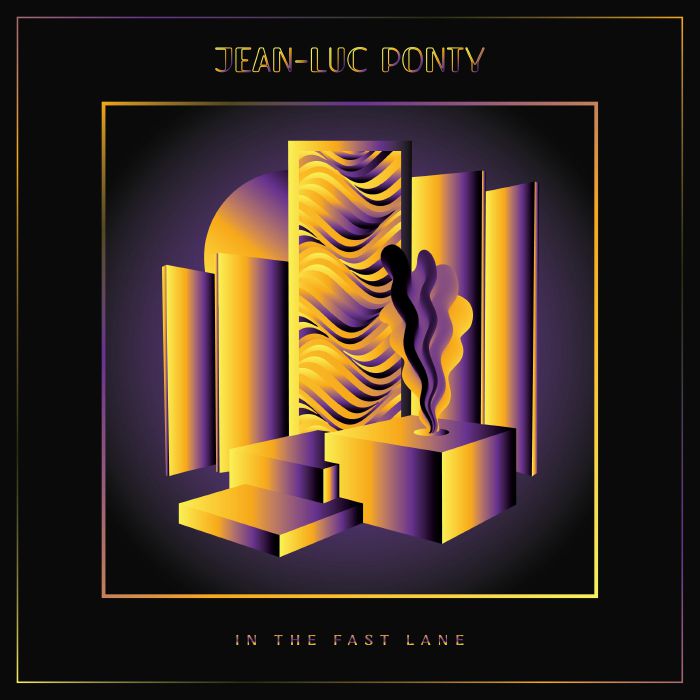Jean-Luc Ponty and the jazz record that Detroit fell in love with
We take a deep dive into the jazz violinist’s special influence on Detroit

A composer, multi-instrumentalist and pioneering jazz violin master may not be the type of artist you’d normally associates with Detroit-born house and techno music. But while large portions of the underground dance community may be blissfully unaware of Jean-Luc Ponty’s vast and boundary-pushing catalogue of work, he’s left an indelible mark on the music of the Motor City.
This month sees the re-issue of one of Ponty’s most groundbreaking and dance-centric compositions, ‘In The Fast Lane’. – a track that’s found its way into the setlists of in-the-know selectors like Gilles Peterson, Theo Parrish and Floating Points among others. The stunning piece appears to have at least as much in common with early Motor City house as it does with jazz fusion. Ponty’s dextrous keys and propulsive chords charge over an off-beat rhythm, providing an irresistible bed from where his virtuoso violin lead elegantly soars.
Musician, DJ, and producer Aroop Roy pulled out all of the proverbial stops to re-issue the track via Vive La Musique – a label he set up specifically to shine a light on select musical morsels that he feels are deserving of renewed focus and introduction to fresh listeners. “Jean-Luc Ponty is one of the great musical pioneers, but I feel he is still under the radar of many people, especially younger generations. I particularly wanted to celebrate his influence on electronic dance music,” says Roy. “I remember hearing ‘In the Fast Lane’ for the first time on Gilles Peterson’s Worldwide show and being totally blown away by the unique combination of Detroit-esque synths and violin-driven jazz fusion.”
Born into a family of musicians in 1942, Ponty was taught how to play the violin and clarinet by his father, while his mother taught him to play the piano. Though initially cutting his performance teeth as a classical player in the Concerts Lamoureux Orchestra in Paris, he took on a side job playing clarinet in a college jazz band in his late teens. Compelled by the work of jazz greats John Coltrane and Miles Davis, his passion for the form blossomed, and – following an impromptu solo violin performance in a Paris jazz club – his trajectory as a jazz violin pioneer appears to have been set in stone. He released his debut album ‘Jazz Long Playing’ in 1964 aged just 22 and went on to release more than 50 far-reaching and boldly experimental albums throughout his long and illustrious career.
His willingness to incorporate electronic elements into his music began with him amplifying his violin so that his instrument could be heard while playing in jazz bands, eventually going on to develop an entirely unique sound with the use of guitar effects pedals. His decades-spanning career has seen him collaborate with a glittering array of musical masters, including Frank Zappa, John McLaughlin, and Lalo Schifrin among many others. With a sound that constantly pushed sonic boundaries, much of his work recorded during the ’80s – the era in which ‘In The Fast Lane’ was birthed – was produced on the revolutionary Synclavier synthesiser, with which he developed a cutting edge style by playing arp-like riffs live. “Many of his tracks from this period have been sampled and, in general, inspired a wide spectrum of electronic music,” says Aroop.

While the similarities in the respective sounds speak for themselves, thanks in part to the clandestine nature of track ID sharing in the far reaches of the dance underground, one has to dig fairly deep to glean hard and fast evidence of Ponty’s enduring legacy on Detroit techno. Charles ‘The Electrifying Mojo’ Johnson was known to champion Ponty’s work on his Midnight Funk Association radio show on Detroit’s WGPR, and The Belleville Three of Juan Atkins, Derrick May, and Kevin Saunderson – credited with the invention of Detroit techno – were known to be avid listeners of the show. But assembling the clues to Ponty’s legacy isn’t limited to conjecture, with newer generations of producers explicitly voicing their enthusiasm for his work.
Detroit techno stalwart DJ Rolando gave Ponty his dues when selecting the French artist’s 1985 ‘Fables’ album as his favourite record for a 2014 Fact Mag segment. “I first discovered Jean-Luc Ponty on [the] radio by chance, circa ’85/’86, a time when techno was new and there was every variety of new music to be heard on the radio,” he said. “The first track I heard from the album was ‘Plastic Idols’. It was experimental, overlapping and crossing over everything that captured my imagination – electronic music, techno, jazz. Once I’d heard ‘Plastic Idols’ I was sold.” Added to this, Rolando alluded to Ponty’s esoteric standing within the wider Detroit techno community. “I don’t know why, but there is definitely a Detroit connection with this artist, this album. It’s a point of comradeship between a number of us – almost an “in the know” type of thing.”
Another figurehead to show love was Underground Resistance member Mark Flash, who name-checked Ponty in a 2014 interview with Detroit Metro Times – before the collective’s Timeline live show at Movement Festival the same year. “Those musicians out there who are good at their craft, they are going to show the rest of the world how it’s done — how music is supposed to be generated,” He said. “Early jazz fusionists like Chick Corea, Lenny White, Stanley Clarke, Jan Hammer, Jean Luc Ponty.”

Though he wasn’t always aware of the influence his music was having on newly-blossoming electronic music movements, Ponty himself regularly felt a special kind of magic when performing in Detroit. “I have always felt a special level of warmth from Detroit audiences,” he says. “Performing there always feels like a homecoming show in the American city where I feel most loved in still to this day.”
The appeal of ‘In The Fast Lane’ wasn’t limited to the Detroit techno community, The song was also an inspiration for UK-based jazz dancers in the late 80s and early 90s, providing impetus for the burgeoning acid jazz scene that was evolving in Britain around that time. Gilles Peterson – who famously coined the name of the movement – has long been an admirer of both Ponty and the track in question. “I’d say the Ponty was the first artist to illustrate what Acid Jazz was meant to sound like,” he tells Juno Daily. “It became a bonafide standard for our scene.”
Originally released in 1989 as part of Ponty’s ‘Storytelling’ album, almost unfathomably, ‘In The Fast Lane’ had until now never received a single release. “I thought such a powerful piece of dance music history deserved the full 12″ treatment,” says Aroop Roy. Featuring on the 12” alongside the remastered original is a brand new version from distinguished musician and genre-surfing producer, Opolopo. With a re-edit or sample-based remix out of the question due to licensing restrictions, Aroop came up with the idea of commissioning a cover version instead.

Naturally, providing a rendition worthy of such a musically complex track would require an exceptionally adept set of hands. “Producing a cover from scratch obviously requires a much higher degree of musical and technical skill than an edit or remix,” he says. “Opolopo is a master of blending jazz and soulful musicality with club-ready electronic music. When I approached him, he confirmed he was a big fan of Ponty – who was himself impressed by Opolopo’s cover.”
Aroop suggests that one of the reasons Ponty’s influence on contemporary dance music hasn’t been universally acknowledged is in part due to the fact that his music generally wasn’t composed with dancefloors – or certainly modern clubs – in mind. “’In the Fast Lane’ of course became an anthem in the UK jazz-dance scene and has been played by veteran heads known for their leftfield taste. But having a dancefloor-centred mix opens up the composition to a much wider range of DJs and will hopefully be a gateway for new generations of listeners to discover Ponty and encourage them to dig into his incredible catalogue of music.”
The re-invigorated single release has already found fans among heavy-hitting taste-makers and DJs, with the likes of Hunee, Mr Scruff, and Laurent Garnier among the first to sing the praises of the package. With the noble plan of introducing Ponty’s work to new audiences ostensibly going very much to plan, it’s perhaps fitting to give the last word on the matter to Jean-Luc himself, who after all these years of performing at the very highest level, still finds joy in knowing that his work continues to be appreciated. “With such a long career in the world of jazz and prog. rock, it makes me very happy to discover that younger generations of musicians from other styles of music and DJs appreciate my work and are inspired to make their own versions,” he says.
Patrizio Cavaliere
The 12″ of ‘In The Fast Lane’ is released on November 12 – pre-order your copy here